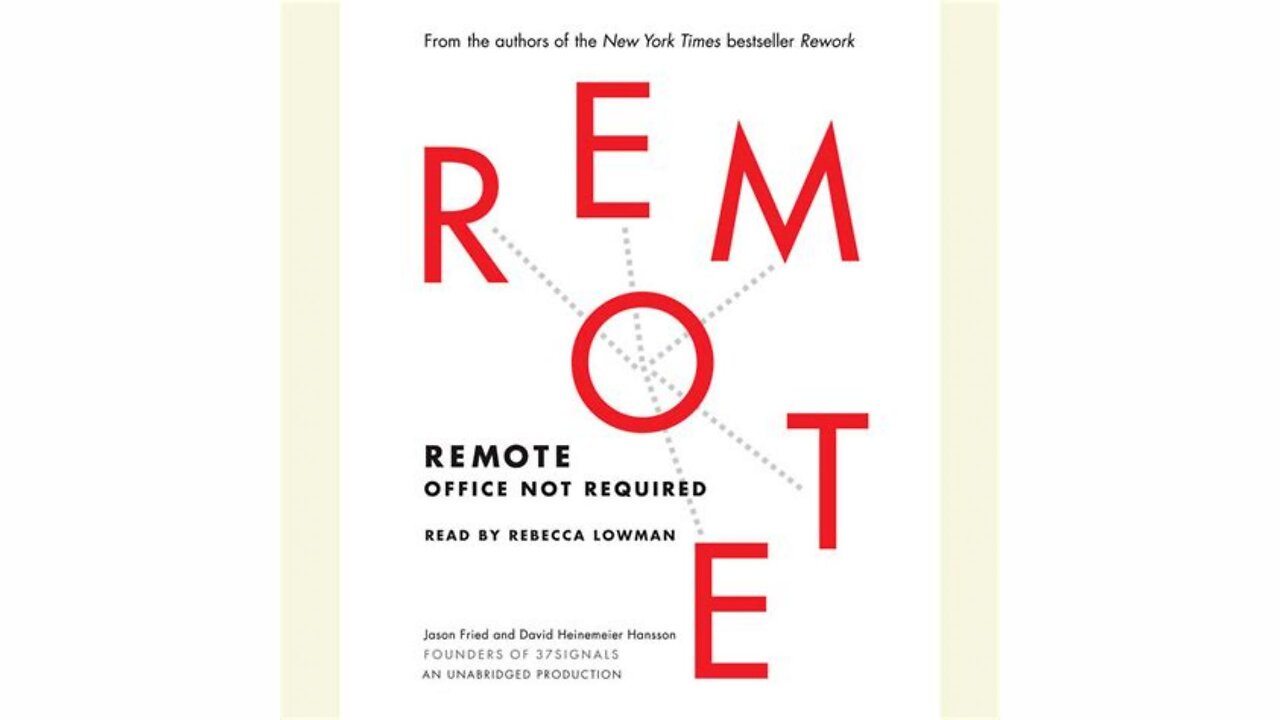Premium Only Content

Remote by David Heinemeier Hansson & Jason Fried | Summary
Buy Here: https://amzn.to/41jIywy
Remote by David Heinemeier Hansson and Jason Fried challenges traditional ideas about work and office culture, advocating for the benefits of remote work. Drawing from the authors’ experience running Basecamp, a fully remote company, the book makes a compelling case for why remote work can lead to greater productivity, flexibility, and work-life balance, while also challenging common misconceptions about the necessity of in-person office environments.
The book outlines how remote work can be effective for companies of all sizes, and it emphasizes that the traditional office setting is not always the most efficient way to foster creativity and collaboration. The authors argue that remote work offers employees more autonomy and flexibility, allowing them to work from anywhere and structure their day in a way that best suits their personal and professional needs. This autonomy, according to the authors, leads to happier employees who are more focused and motivated.
One of the key arguments in Remote is that remote work does not mean a lack of communication or collaboration. The authors explain that the tools available today—such as instant messaging, video conferencing, and project management software—make it easier than ever for teams to stay connected, share ideas, and work together on projects in real time. The book stresses that successful remote work relies on clear communication, structured processes, and trust among team members.
The authors also address the challenges of remote work, such as feelings of isolation and difficulty in managing distractions. However, they argue that these challenges are manageable with the right mindset and practices. They suggest ways to create a remote-friendly company culture, including focusing on results rather than hours worked, setting clear expectations, and ensuring that everyone feels included and engaged, regardless of location.
Additionally, Remote explores how remote work can lead to more inclusive and diverse teams. By removing the geographical restrictions of hiring, companies can tap into a wider talent pool and recruit people from diverse backgrounds and experiences, which can ultimately improve the company’s performance and creativity.
The book also critiques the traditional 9-to-5 workday and the expectation that employees need to be in the office to be productive. The authors argue that trust, flexibility, and outcomes should be the focus, rather than physical presence or hours worked.
Remote offers practical advice for both employees and employers who are considering adopting remote work or improving their existing remote work practices. It’s an encouraging guide that demonstrates how remote work can be a powerful tool for both personal and professional growth, if done right. Through the book, Hansson and Fried highlight that remote work, when approached thoughtfully and strategically, can create a more efficient, productive, and happier work environment."
-
 8:36
8:36
China Uncensored
4 hours agoIs China’s EV Industry Collapsing?
49K54 -
 4:17:00
4:17:00
Tundra Tactical
20 hours ago $18.00 earnedSHOT SHOW 2025!!!!!! Whats Are We Looking Forward To Most
121K16 -
 22:53
22:53
Film Threat
1 day agoA TRIBUTE TO VISIONARY DIRECTOR DAVID LYNCH | Film Threat News
31.1K6 -
 20:30
20:30
Exploring With Nug
1 day ago $2.14 earnedMissing Father of 2 FOUND Underwater In Shallow Pond!
14.5K4 -
 19:19
19:19
This Bahamian Gyal
1 day agoThe View PRAISES Michelle Obama for DITCHING TRUMP inauguration, "when they go LOW, go even LOWER"
12.8K24 -
 14:25
14:25
Degenerate Jay
20 hours ago $3.49 earnedThe Flash Movie Failed Because People Hate The Character? Sure.
40.3K10 -
 28:30
28:30
CharLee Simons Presents Do Not Talk
6 days agoSam Anthony from YourNews.com (with host CharLee Simons)
28.4K1 -
 52:34
52:34
PMG
17 hours ago $1.90 earnedHannah Faulkner and Steve Friend | EXPOSE THE FBI CORRUPTION - KASH PATEL
20.1K6 -
 25:33
25:33
marcushouse
1 day ago $37.43 earnedStarship Exploded! What Went Wrong? Flight Test 7 Explained
189K61 -
 1:00:50
1:00:50
Squaring The Circle, A Randall Carlson Podcast
1 day ago#035 Cosmic Catastrophe In The Age Of Leo - Squaring The Circle: A Randall Carlson Podcast
115K32